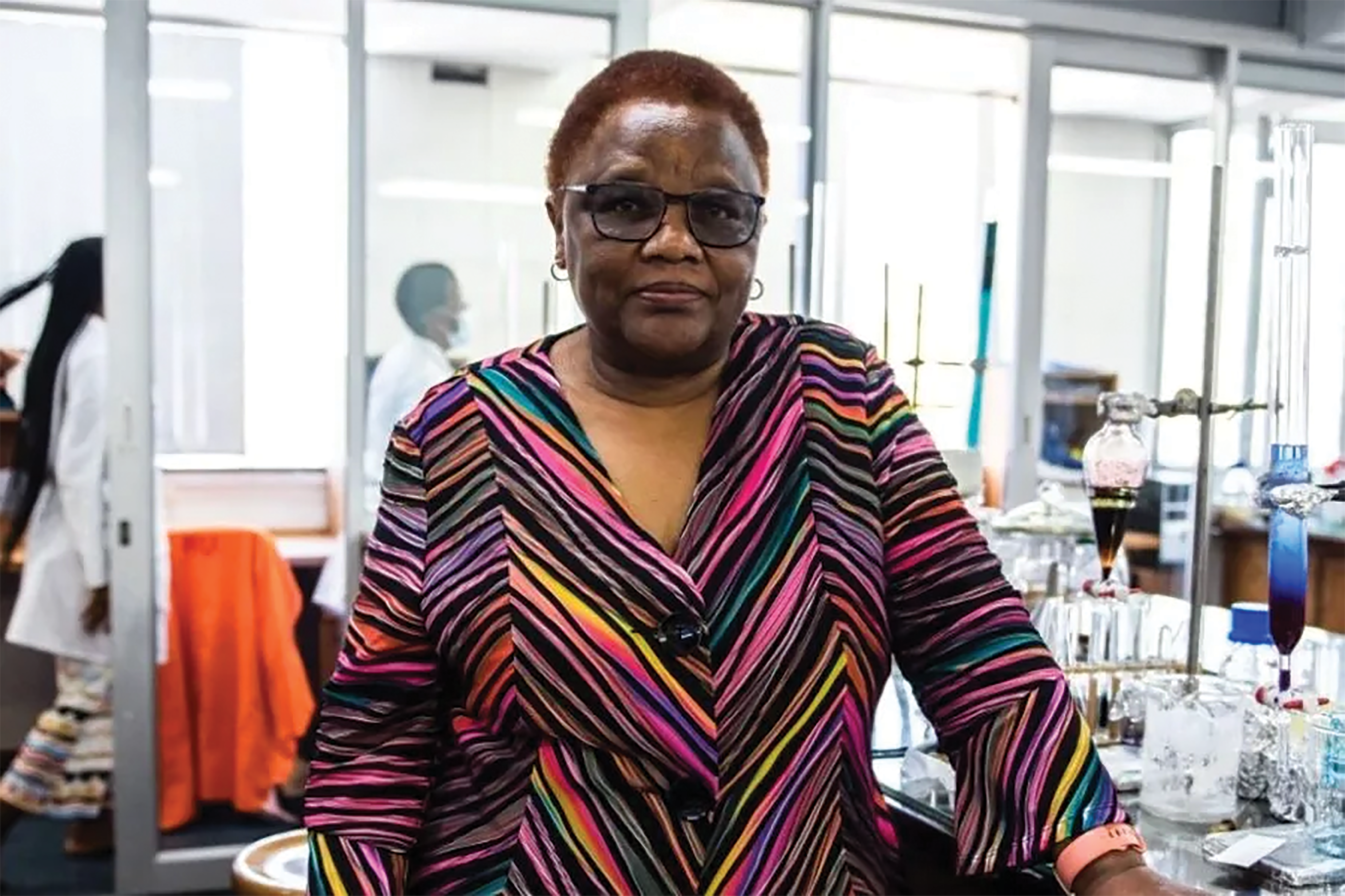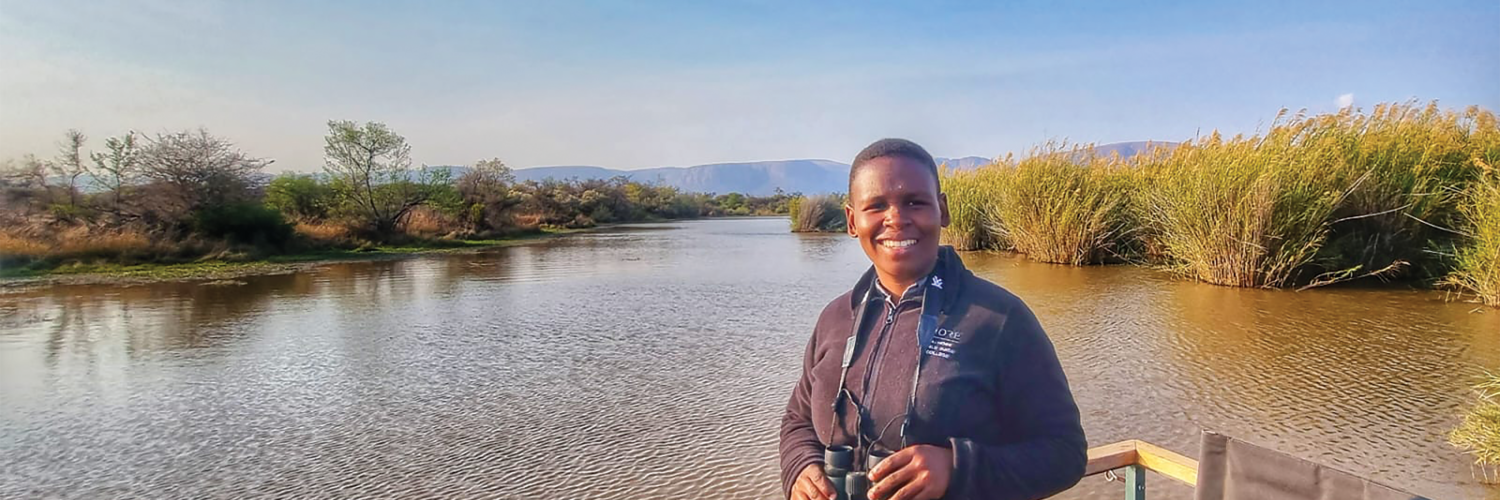RURAL: Growing interest among young people around Kruger National Park to pursue conservation and hospitality careers…
By WSAM Reporter
Africa’s “economy of wildlife” is ripe with possibility. By nurturing a love of the natural environment in young people living on the borders of on the country’s pristine wild spaces like the Greater Kruger National Park, nearby rural communities can contribute to sustainable development and tap into the sector’s rich potential for employment.
Realising this, education non-profit Good Work Foundation (GWF) created its Travel & Tourism Academy, which offers career training in conservation and hospitality to young rural Mpumalanga residents.
The academy has seen at least 95% of its graduates employed in lodges, private game reserves, hotels and other establishments, mainly in and around the Sabi Sands Private Game Reserve and the Greater Kruger National Park.
“Game lodges would like to ‘employ local’,” explains Kathleen Hay, GWF’s Travel & Tourism Academy programme manager. She says having access to area-specific vocational training means that young rural people can study and ultimately work close to where they live. “You could say we’re growing our own timber.”
Says Conservation Academy coordinator Sibusiso Mnisi, “I’ve seen a great transformation in our students as they come to understand what it truly means to conserve the natural environment. Their eyes are opened to the impact of the crisis of rhino poaching, how trees can be used sustainably, and what careers they can pursue. It’s a great life-changing experience for young people.”
A case in point is Conservation Academy graduate Amend Mhlanga, who, following his foundation year at GWF, was accepted to further his conservation education journey at the prestigious More Field Guide College. While out with guests on a game drive, he crafted a whistle flute (called xiwhewhe in Xitsonga) from the dried shell of the fruit from a black monkey orange tree – demonstrating a deep connection with the land and its natural treasures.
Says Mhlanga, who grew up in the village of Newington near the Kruger National Park, “What inspired me to become a field guide was being out with my dad in the bush. He was a field guide and used to take me out with him. He taught me about interactions between animals as well as between people and wildlife, and about respecting our natural environment. About his training at GWF, he adds, “I have learnt the power of taking small steps and that change is good.”
Furthermore, female Conservation Academy graduates are busting the stereotype that wildlife conservation is a man’s job – such as Joyce Maile, an apprentice field guide at the Lion Sands Game Reserve. She says the conservation programme “encouraged me to see the environment in a different way. Nature guiding was always seen as a man’s job, but I have always loved being in nature and believed I could become a field guide. I am strong and fearless!”
Adds Mnisi, “If we can foster a holistic understanding of how everything is interconnected among young people, then we’ve done our job.”

POPE APPOINTS SA PROFESSOR TO TOP VATICAN POSITION
SHAKER: Professor Tebello Nyokong has been appointed member of the Pontifical Academy of Social Sciences…
By Jude Atemanke
Pope Francis has appointed a South Africa-based Professor of chemistry as a member of the Pontifical Academy of Social Sciences.
The appointment of Professor Tebello Nyokong to the Vatican-based institution that was founded in January 1994 to promote the study and progress of social sciences was made public on Saturday, June 2.
The academy that was established by St John Paul II aims at promoting the academic fields of “economics, sociology, law and political science, thus offering the Church those elements, which she can use for the development of her social doctrine, and reflecting on the application of that doctrine in contemporary society,” the entity’s leadership has indicated.
Born on 20 October 1951 in Maseru, Lesotho, Nyokong is the Director of the Institute for Nanotechnology Innovation at Rhodes University in South Africa.
The holder of a master’s degree in chemistry from McMaster University in Canada in 1981 was awarded a doctorate in the same discipline at the University of Western Ontario in Canada in 1987.
She has received numerous honours and awards, including the Order of Mapungubwe, and the Gold Medal of the South African Chemical Institute. Nyokong is currently researching a new cancer diagnosis and treatment methodology called “photo-dynamic therapy”, which is intended as an alternative to chemotherapy.
The new therapy is based on using the dye, which is used to colour blue denim clothing, and which is inert and harmless by itself but can be activated by exposure to a red laser beam.
The system, which has been used in some countries, does not destroy hair or healthy cells or cause nausea, according to reports.
In 2007, Nyokong was one of the top three publishing scientists in South Africa; she was awarded the National Research Foundation’s Lifetime Achievement Award in 2013. – AICAFRICA

































